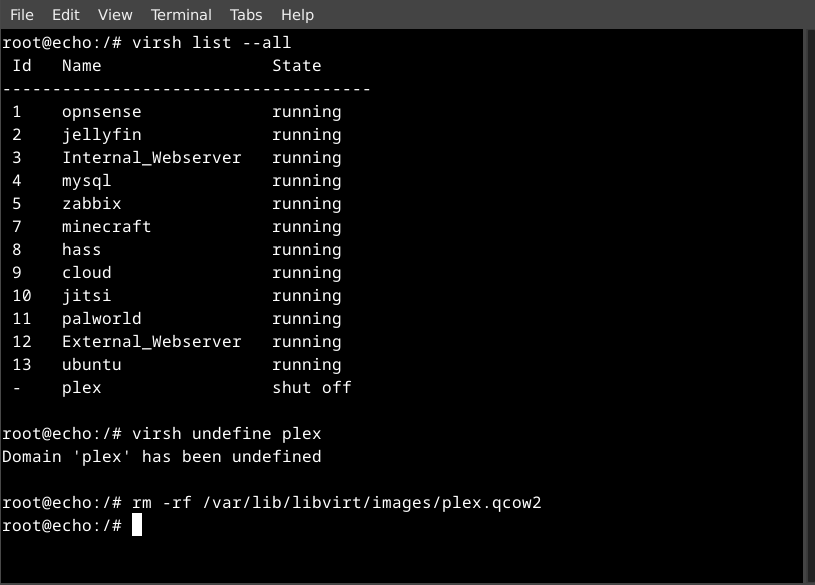How did you set up Jellyfin with Authentik? Are you using SSO or is it only through LDAP?
Selfhosted
A place to share alternatives to popular online services that can be self-hosted without giving up privacy or locking you into a service you don't control.
Rules:
-
Be civil: we're here to support and learn from one another. Insults won't be tolerated. Flame wars are frowned upon.
-
No spam posting.
-
Posts have to be centered around self-hosting. There are other communities for discussing hardware or home computing. If it's not obvious why your post topic revolves around selfhosting, please include details to make it clear.
-
Don't duplicate the full text of your blog or github here. Just post the link for folks to click.
-
Submission headline should match the article title (don’t cherry-pick information from the title to fit your agenda).
-
No trolling.
Resources:
- selfh.st Newsletter and index of selfhosted software and apps
- awesome-selfhosted software
- awesome-sysadmin resources
- Self-Hosted Podcast from Jupiter Broadcasting
Any issues on the community? Report it using the report flag.
Questions? DM the mods!
i ended up doing both. ldap for the apps. oidc for web based users and the apps that support the quick connect feature. the local user account system works fine too, and ldap would be enough. i just wanted an excuse to play round with sso systems, and it was fun figuring out how to connect all my servers.
authenik has a good docs site for both it's docker container and connecting it to jellyfin. Authelia looked interesting too.
I have been running in parallel both jelly and plex and jelly is good.
Anyone have experience hosting a server for non-technical parents? Plex is just so plug and play and they have clients for even the shittiest old smart TVs.
Foss superiority gang
What is authentik and could I use it on podman with compose?
Its a pre-authentication gateway and SSO provider for OAuth/SAML. So if you dont trust a random docker container to be secure it requires you to authenticate and then it automatically passes a token to the app for SSO if it supports OAuth/SAML.
authentik is an identity server. theres a couple free ones available, this one just worked for me. it provides oauth and ldap fallback for the jellyfin server. along with login for most of the other servers i host like nextcloud/calibre-web/lychee etc. it has a nice easy log in process along with a 'homepage' kinda thing for everything my users can access with their account. makes it easier to support the non technical friends and family.
The best and most versatile system is having domains and a reverse proxy that has internal and external domains. Ie jelly.example.com and Vaultwarden.internal.example.com
Then you add authentik which does SSO for many app like nextcloud, immich, linkwarden etc. For apps that don't integrate, you can still use his with reverse proxy authentication (sonarr).
Naturally this is more complex to setup but nothing beats the versatility.
I can choose extra protection for things like vaultwarden (need to connect via wiregaurd). Make things external for other users to access easily (immich, jellyfin, etc). Everything is based on users that are made in authenticatik and they all have the same password with single sign on.
You would approach this is pieces. get the domain and reverse proxy working first. Then authentik. this is only realistic with docker compose.
There are a few things about jellyfin that I don't like compared to Plex. First I can't skip the intro of a show drives me nuts. The second one is it has newly added but not newly released. Other then that it has been really good.
https://github.com/intro-skipper/intro-skipper
*edit it's such a common complain this got posted twice at the same time :)
This is probably the wrong post to ask this question, so sorry in advance.
I have a dual boot Linux + Windows. Jellyfin runs wonderfully on muy Linux partition with docker-compose. Anybody knows how can I clone it in my Windows partition, such that configs, metada and accounts remain the same? I've failed to do this, and only the media volume remaines identical on both OS.
